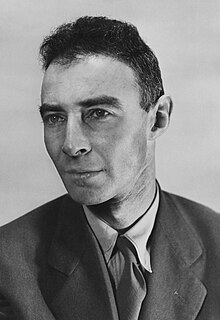Julius Robert Oppenheimer: The Father of Nuclear Physics
In this post, we will be delving into the captivating saga of Julius Robert Oppenheimer, also referred to as the father of nuclear physics. As an astronomer he has heavily influenced this field and his story is a complex web of groundbreaking science, personal tragedy, and political intrigue.
Below is a brief outline of the subjects that will be discussed in this article:
- Who was Julius Robert Oppenheimer and what was his impact on the world?
- Why was Oppenheimer also considered an astronomer?
- The significance of discoveries made by Oppenheimer
- The influence of the Manhattan Project
- The Oppenheimer movie – how well did it represent his life and work?
- Oppenheimer’s controversial political beliefs – the truth and how he was framed as a socialist
- Reflecting on Oppenheimer’s death and the continuing impact of his work
Let’s embark on this riveting journey through the life and times of Julius Robert Oppenheimer.
Who was Julius Robert Oppenheimer?
Julius Robert Oppenheimer, born on April 22, 1904, in New York City, is best known as the father of nuclear physics. As a theoretical physicist and professor, Oppenheimer made significant contributions to the fields of nuclear science and cosmology before taking up the leadership role in the Manhattan Project, the endeavor responsible for the creation of the atomic bomb during World War II.
Why Oppenheimer was an Astronomer?
Oppenheimer’s fascination with astronomy began at a young age, and throughout his career, he made several significant contributions to this field. While many associate the father of nuclear physics with his work on the atomic bomb, Oppenheimer was also an astronomer, studying nebulae, galaxies, and the concept of black holes. He believed that understanding the universe’s workings could have profound implications for comprehending the fundamental nature of matter and energy.
Knowledge Discovered by Oppenheimer
Dr. Oppenheimer’s investigations led to several groundbreaking discoveries. He proposed a method to calculate the likelihood of the nuclear fusion reaction occurring in stars and suggested a limit for neutron star mass above which a star would not remain a star. In collaboration with his students, Oppenheimer also worked on quantum tunneling and predicted black holes’ existence before they were empirically discovered.
The Manhattan Project and Oppenheimer’s Role
The Manhattan Project was a top-secret program undertaken during World War II to develop an atomic weapon. Oppenheimer was appointed the project’s scientific director due to his expertise and leadership skills. His role was instrumental in organizing the project, recruiting scientists, coordinating research, and ultimately leading to the successful creation of the first atomic bombs.
Oppenheimer Movie
The Oppenheimer movie, portraying Oppenheimer’s life and work, shed light on his complex personality and tumultuous career. The film has been praised for doing justice to Oppenheimer’s scientific genius and illuminating the ethical struggles he faced in spearheading the atomic bomb’s development.
Oppenheimer’s Politics: From Truth to Accusations of Socialism
Politically, Oppenheimer held complex views. While his work was invaluable to the US efforts during WWII, he was also accused of having socialist views. The truth about Oppenheimer’s politics is far from straightforward. Although he was involved with left-wing politics in his younger years, he was not an active member of the Communist Party.
Yet, these political ties resulted in a downfall when Oppenheimer came under suspicion during the McCarthy era’s paranoia. He was called before Congress and asked about these associations, grinding his career to a halt and tarnishing his reputation. But many argue this was a calculated move by political adversaries who disapproved of Oppenheimer’s stance against the development of the hydrogen bomb.
Thus, we can say that Oppenheimer’s political views’ reality was clouded by the era’s political climate, leading to him being framed as a socialist, despite his significant contributions to national security.
The Downfall and Vindication
The allegations against Oppenheimer eventually led to him losing his security clearance in 1954, effectively sidelining one of the most brilliant minds in the country from any further government research. This period was one of immense professional and personal distress for Oppenheimer. However, he chose to continue his work and spent the last years of his life as the director of the Institute for Advanced Study in Princeton, New Jersey.
Legacy and Influence on Astronomy
Despite the trials and tribulations of his life, Oppenheimer’s impact on the world of science, more specifically, the field of astronomy, cannot be undermined. He theorized the existence of black holes way before their actual discovery and studied the neutron stars’ behavior. These contributions significantly advanced our understanding of the cosmos and have a lasting impact even today, echoing Oppenheimer’s influence on astronomy for years to come.
Oppenheimer’s Death
On February 18, 1967, Oppenheimer passed away from throat cancer, leaving behind a remarkable scientific legacy and a complicated personal history. But, his accomplishments and services to his nation did not go unrecognized. In 1963, President Lyndon B. Johnson presented him with the Atomic Energy Commission’s Fermi Award, a vindication of sorts. His acceptance speech of this award, where he quoted from the Bhagavad Gita, “I am become Death, the destroyer of worlds,” remains one of the most poignant moments in nuclear history.
Oppenheimer’s death marked the end of an era. Despite numerous detractors and controversies, his life and work continue to intrigue and inspire generations, not just for his scientific prowess but also for his philosophical musings on science and its implications on humanity.
How Oppenheimer Shaped The World
Whether it was his crucial role in the Manhattan Project, groundbreaking revelations in astronomy or his complex political history, Oppenheimer’s life was nothing short of an intense, dramatic narrative that continues to inspire movies and discussions. As a person, Oppenheimer has been described as a man of many layers – someone brilliant, complex, and deeply insightful about mankind.
The story of Julius Robert Oppenheimer is not just about a man who played an essential role in one of history’s most pivotal moments; it’s also a tale of intellectual curiosity, moral dilemmas, and endless pursuit for knowledge. Oppenheimer’s truth truly resides in his shared legacy of extraordinary science and complex histories.
In Conclusion
The life of Julius Robert Oppenheimer, often celebrated as the father of nuclear physics and a notable astronomer, is a tale both inspirational and cautionary. His groundbreaking contributions in the realm of nuclear physics and astronomy have left an indelible mark on the world. Yet, his pivotal role in the development of the most destructive weapon known to mankind, and his subsequent political downfall provides a haunting reflection on the dangers of unchecked scientific progression and political paranoia.
Oppenheimer’s life, fascinatingly captured in the Oppenheimer movie, serves as a testament to the intricate interplay between science, politics, and ethics. It continues to ignite discussions on balancing scientific advancements with their potential ethical implications.
Despite being unjustifiably framed as a socialist, Oppenheimer’s allegiance to science and truth never wavered. His death signaled the end of a monumental era in scientific discovery. Still, his legacy persists, shedding light on the universe’s secrets and reminding us of the potential science holds, both in its capacity to construct and destruct.
In navigating through the dramatic lanes of Oppenheimer’s life, we witness a narrative laden with potent insights on progress, power, politics, ethics, and the limitless human spirit’s resilience.







